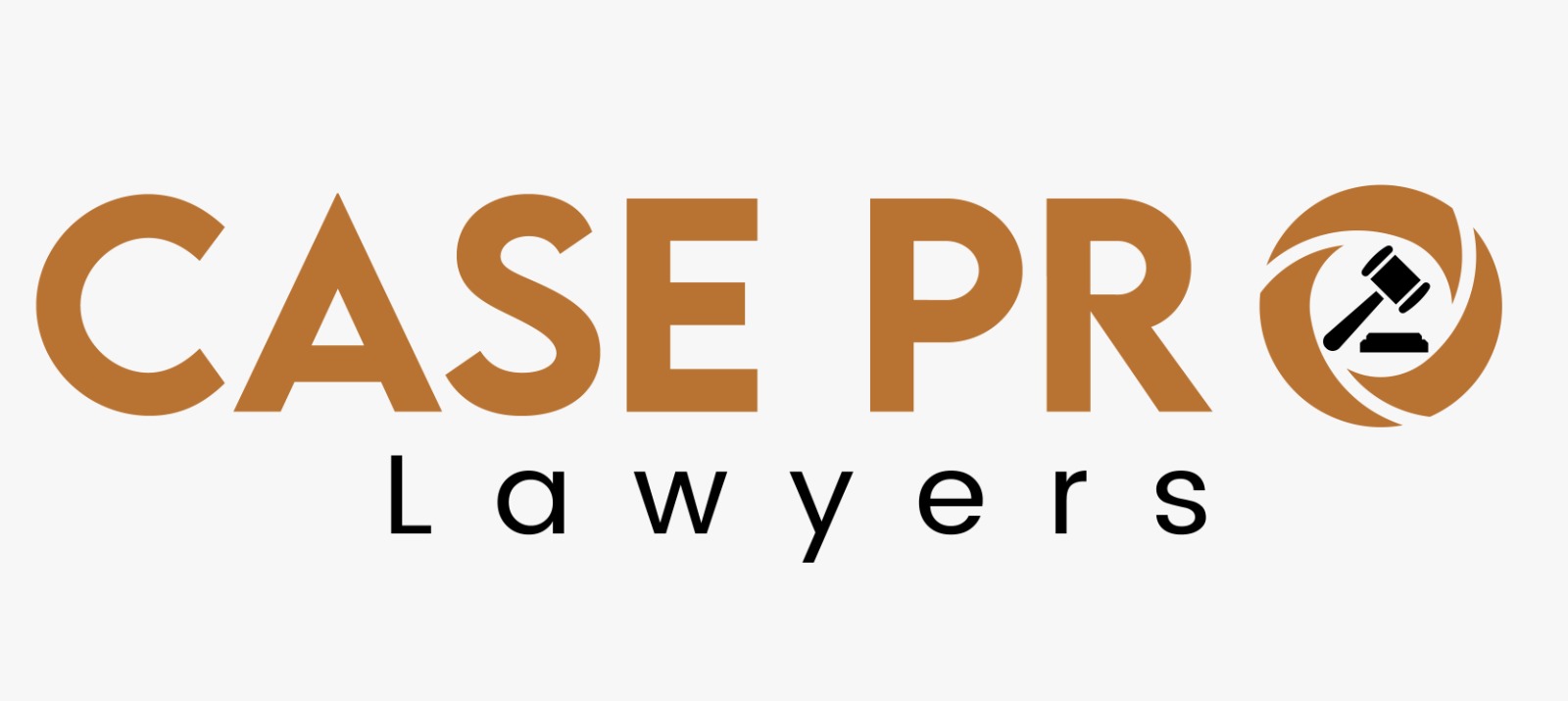Case Pro Practice Areas
Case Pro Practice Areas
Law Firm with relevant Case Studies!
Case Pro Lawyers demonstrate client acquisition & retention rates above average industry standards. Request a

Environment Law
At Case Pro Lawyers, we believe that a healthy environment is not just a right—it’s a responsibility. Our environmental law attorneys are dedicated to protecting natural resources, holding corporations accountable, and ensuring compliance with environmental regulations. Whether you are an individual, a business, or a community organization, we provide strategic legal solutions to navigate the complex landscape of environmental protection laws, land use disputes, regulatory compliance, and sustainability initiatives.
We advocate for clean air, safe water, and sustainable development, helping clients address issues such as pollution claims, climate change litigation, hazardous waste disputes, and conservation efforts. If you are facing an environmental legal challenge—whether as a concerned citizen or a business seeking compliance—our firm offers the expertise and dedication needed to achieve justice.
The future of our environment depends on the actions we take today. Let us help you protect what matters most. Contact us today to discuss your case and explore your legal options.
Understanding Environmental Law
Environmental law is a broad and complex legal field that governs the interaction between human activities and the natural environment. It consists of international, federal, state, and local laws, regulations, and treaties designed to protect air, water, land, wildlife, and public health from pollution, degradation, and unsustainable development.
Environmental law establishes legal standards to prevent harm to ecosystems, ensure sustainable resource use, and hold individuals, corporations, and governments accountable for environmental damage. It plays a crucial role in addressing climate change, conserving biodiversity, and maintaining ecological balance.
Key Areas of Environmental Law
Air and Water Quality Regulation
Environmental law enforces standards to ensure clean air and safe drinking water. Major regulations include:
Clean Air Act (CAA) – Regulates air pollutants and emissions from industries and vehicles.
Clean Water Act (CWA) – Protects U.S. waterways from pollution and industrial waste.
Safe Drinking Water Act (SDWA) – Ensures public water systems provide safe drinking water.
These laws empower government agencies like the Environmental Protection Agency (EPA) to monitor and enforce compliance.
Land Use and Conservation Laws
Laws governing land use protect natural habitats, wetlands, forests, and agricultural lands while balancing economic development. Key laws include:
National Environmental Policy Act (NEPA) – Requires environmental impact assessments for federal projects.
Endangered Species Act (ESA) – Protects threatened and endangered species from habitat destruction.
Public Land Management Laws – Regulate national parks, wildlife refuges, and protected areas.
Developers and businesses must comply with zoning laws, conservation easements, and land-use regulations.
Pollution Control and Waste Management
Environmental laws regulate industrial waste disposal, hazardous materials, and toxic chemicals to minimize pollution. Major regulations include:
Resource Conservation and Recovery Act (RCRA) – Controls hazardous and non-hazardous waste disposal.
Comprehensive Environmental Response, Compensation, and Liability Act (CERCLA or Superfund Law) – Holds companies responsible for cleaning up hazardous waste sites.
Toxic Substances Control Act (TSCA) – Regulates the manufacture and distribution of toxic chemicals.
These laws aim to prevent soil contamination, groundwater pollution, and exposure to hazardous substances.
Climate Change and Renewable Energy Law
As climate change becomes a global concern, environmental law plays a pivotal role in regulating carbon emissions and promoting sustainable energy. Key initiatives include:
The Paris Agreement – An international treaty to reduce global carbon emissions.
Corporate Carbon Regulations – Enforces emission caps and carbon trading programs.
Renewable Energy Incentives – Federal and state programs that encourage the adoption of wind, solar, and hydroelectric energy.
Climate litigation is also rising, with lawsuits against governments and corporations for failing to address climate risks.
Environmental Justice and Human Rights
Environmental law intersects with human rights by ensuring that all communities—especially marginalized groups—have access to clean air, water, and a healthy environment. It fights against:
Environmental racism – Disproportionate pollution exposure in low-income and minority communities.
Illegal dumping and industrial hazards near residential areas.
Failure to regulate corporate polluters that harm public health.
Legal advocacy ensures communities have a voice in environmental decision-making and policymaking.
Corporate Environmental Compliance
Businesses must adhere to environmental laws when conducting operations that impact the environment. Compliance includes:
Obtaining environmental permits
Reducing carbon footprints and emissions
Proper waste disposal and recycling practices
Mitigating environmental damage caused by industrial activities
Non-compliance can result in fines, lawsuits, and reputational damage. Companies must stay informed on regulatory updates to avoid legal liabilities.
Why Environmental Law Matters
Environmental law serves as a safeguard against excessive exploitation, pollution, and destruction of natural resources. It ensures that economic progress does not come at the expense of environmental sustainability.
By holding corporations, governments, and individuals accountable, environmental law promotes a healthier planet and secures environmental rights for future generations. Whether addressing oil spills, deforestation, or climate change policies, these laws play a critical role in maintaining ecological balance and protecting public health.
Conclusion
Environmental law is a vital and dynamic legal field that plays a crucial role in shaping policies for sustainability, conservation, and environmental protection. Whether it involves litigating against polluters, advising businesses on compliance, or advocating for stronger climate policies, environmental law remains at the forefront of global efforts to safeguard our planet.


An environmental lawyer specializes in laws and regulations related to environmental protection, natural resources, pollution control, and sustainability. They provide legal counsel to businesses, government agencies, nonprofits, and individuals on issues like:
Environmental compliance and permitting
Land use and conservation
Climate change regulations
Pollution and hazardous waste disputes
Environmental litigation and advocacy
They may also represent clients in lawsuits involving contaminated land, regulatory violations, or environmental damage claims.
You should consult an environmental lawyer if you:
Need guidance on regulatory compliance for a business or industrial project.
Are facing environmental litigation or penalties for violating environmental laws.
Want to challenge a government decision affecting land use, zoning, or pollution control.
Are involved in real estate transactions that may be impacted by environmental regulations.
Need help with climate change policies, renewable energy projects, or sustainability initiatives.
An environmental lawyer ensures you understand your rights and obligations while protecting your interests.
Businesses must comply with several federal and state environmental laws, including:
The Clean Air Act (CAA): Regulates air pollution emissions.
The Clean Water Act (CWA): Controls water pollution and wastewater discharge.
The Resource Conservation and Recovery Act (RCRA): Governs hazardous and solid waste management.
The Comprehensive Environmental Response, Compensation, and Liability Act (CERCLA or Superfund): Manages the cleanup of contaminated sites.
The National Environmental Policy Act (NEPA): Requires environmental impact assessments for major projects.
Failure to comply with these laws can result in fines, legal action, and reputational damage.
If you witness an environmental violation (e.g., illegal dumping, pollution, or hazardous waste disposal), you can:
Report it to the Environmental Protection Agency (EPA).
Contact state or local environmental agencies.
File a citizen lawsuit under environmental protection laws.
An environmental lawyer can guide you on the proper legal steps to take.
If your property is contaminated due to industrial pollution or hazardous waste, you may have legal options, including:
Filing a claim under CERCLA (Superfund) to hold responsible parties accountable.
Suing for damages if pollution has caused property devaluation or health risks.
Negotiating with responsible entities for cleanup and remediation.
An environmental lawyer can assess your case and pursue legal remedies.
Yes. If a company’s activities have caused environmental harm, you may file a lawsuit for pollution, toxic exposure, or ecological damage. Common claims include:
Toxic tort lawsuits (for health damage caused by pollutants).
Property damage lawsuits (for land contamination or water pollution).
Class action lawsuits (if a community is affected by environmental harm).
Environmental lawyers help individuals, groups, and communities seek justice and compensation for environmental damages.
An Environmental Impact Assessment (EIA) evaluates how a proposed project may affect the environment. It is required for:
Large-scale construction or industrial projects
Infrastructure developments (e.g., highways, pipelines)
Energy projects (e.g., oil drilling, wind farms)
Under NEPA (National Environmental Policy Act), major projects must undergo an EIA before approval to ensure environmental sustainability.
A Superfund site is a location contaminated with hazardous waste that requires federal cleanup under CERCLA. The EPA identifies responsible parties to:
Pay for or conduct cleanup operations.
Restore contaminated land and water sources.
Prevent further environmental harm.
If you own or operate property near a Superfund site, an environmental lawyer can help navigate liability and legal obligations.
Climate change laws impact businesses through:
Carbon emission regulations and reporting requirements.
Renewable energy incentives and tax credits.
Sustainability and corporate social responsibility (CSR) obligations.
Lawsuits related to climate change damage or inaction.
Environmental lawyers assist businesses in compliance, sustainability planning, and risk management.
Yes. Even if a company complies with regulations, they may still be sued for environmental harm under common law principles such as:
Nuisance law (if pollution affects communities).
Negligence (if harm results from reckless environmental practices).
Strict liability (for inherently dangerous activities).
An environmental lawyer helps mitigate risks, defend against claims, and ensure regulatory compliance.
Environmental justice ensures that all communities, regardless of race or income, have equal protection under environmental laws. It addresses issues such as:
Pollution disproportionately affecting low-income or minority communities.
Lack of access to clean water, air, and sustainable resources.
Government and corporate accountability for environmental harm.
If you believe your community is experiencing environmental injustice, an environmental lawyer can help file lawsuits, advocate for policy changes, and seek legal remedies.
If your business is facing an environmental lawsuit or regulatory violation, you should:
Consult an environmental lawyer immediately to assess the claims.
Conduct an internal environmental audit to determine compliance.
Work with regulatory agencies to resolve disputes or negotiate settlements.
Legal representation is crucial to protect your company’s reputation, mitigate penalties, and ensure compliance.
Environmental lawyer fees vary depending on the case complexity and legal services required. Common fee structures offered by Case Pro Lawyers include:
Hourly rates (for consultations and legal advice).
Flat fees (for contract reviews and compliance audits).
Contingency fees (for lawsuits, where fees are paid only if the case is won).
Some nonprofits and government agencies that we work with offer pro bono legal services for environmental protection cases.
The statute of limitations for environmental claims varies by case type and jurisdiction. Examples include:
Pollution-related claims: Typically 2-5 years from discovery.
Toxic exposure cases: May have longer deadlines due to delayed health effects.
CERCLA (Superfund) claims: Typically 3 years from site cleanup completion.
An environmental lawyer can determine the exact filing deadlines for your case.
To get legal help for an environmental issue, contact [Your Law Firm Name] for a consultation. Our experienced environmental lawyers can assist with:
✅ Regulatory compliance for businesses
✅ Environmental litigation and defense
✅ Land use, conservation, and sustainability laws
✅ Pollution claims and toxic exposure cases
👉 Protect your rights and the environment—schedule a consultation today!
Talk to a licensed lawyer – get your case reviewed and placed with the right attorney. Case Pro Lawyers and associates have the highest win rates in the industry. NO RECOVERY NO FEE
